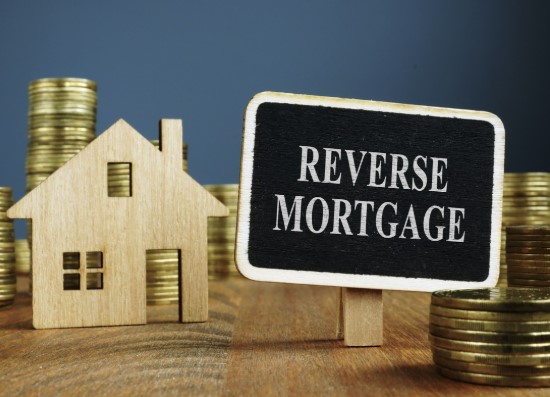How to Pay Off a Reverse Mortgage Early: Strategies and Key Considerations

Reverse mortgages can provide a financial lifeline for homeowners aged 62 and older, allowing them to tap into their home equity as supplemental income during retirement. However, circumstances may change, prompting some to consider paying off their reverse mortgage early. This decision may stem from financial shifts, personal goals, or a desire to safeguard home equity for heirs.
This guide explores effective strategies for paying off a reverse mortgage early, alongside the benefits, potential drawbacks, and critical factors to consider.
What Is a Reverse Mortgage?
A reverse mortgage is a loan tailored for seniors, enabling them to borrow against their home equity without requiring monthly repayments. Unlike traditional mortgages, the loan balance grows over time due to accrued interest. The loan becomes due when the borrower sells the home, moves permanently, or passes away.
While reverse mortgages can ease financial burdens, some homeowners may wish to repay them earlier than required. Doing so can be an advantageous move—but it demands careful planning.
Why Pay Off a Reverse Mortgage Early?
Homeowners might consider early repayment for several reasons:
- Preserve Equity for Heirs: Reducing the debt allows heirs to inherit more of the home’s equity.
- Save on Interest: Paying off the loan sooner reduces the interest that would otherwise accumulate over time.
- Boost Financial Flexibility: Clearing the loan offers greater control over finances, especially for homeowners who plan to use the property differently.
- Facilitate Relocation: Paying off the mortgage simplifies the process of selling or transitioning to a new home.
Strategies for Early Repayment
There are several ways to pay off a reverse mortgage, each suited to different financial circumstances. Consider these options:
1. Sell the Property
Selling the home is one of the most straightforward ways to repay the loan. The proceeds cover the loan balance, and any remaining equity goes to the homeowner or their heirs.
- Pros: Simple and direct; allows access to any remaining equity.
- Cons: Requires vacating the property, which may disrupt living arrangements.
2. Use Savings or Liquid Assets
If sufficient savings or liquid assets are available, they can be used to pay off the loan while retaining ownership of the home.
- Pros: Preserves the home and avoids additional borrowing.
- Cons: Reduces cash reserves, which could impact other financial needs.
3. Make Voluntary Payments Over Time
Although reverse mortgages typically don’t require payments, borrowers can choose to make voluntary payments to reduce the principal balance gradually.
- Pros: Offers flexibility and helps lower debt over time.
- Cons: Requires consistent effort and discipline; may not yield significant interest savings compared to a lump-sum payoff.
4. Refinance into a Traditional Mortgage
Refinancing into a conventional mortgage or home equity loan can repay the reverse mortgage, especially if market conditions offer lower interest rates.
- Pros: Potentially reduces interest rates; allows for structured payments.
- Cons: Reintroduces monthly payments and incurs refinancing costs.
5. Leverage Other Investments
Funds from investments like stocks, bonds, or retirement accounts can be liquidated to pay off the loan.
- Pros: Maintains ownership of the home and may offer tax advantages.
- Cons: Risks affecting investment growth and incurring tax liabilities.
Benefits of Paying Off a Reverse Mortgage Early
- Interest Savings: Reduces the amount paid over the life of the loan.
- Maximized Inheritance: Increases the value of the estate for heirs.
- Greater Financial Autonomy: Provides peace of mind and flexibility for future decisions.
Potential Drawbacks
- Reduced Liquidity: Using savings or assets for repayment can limit funds for other needs.
- Opportunity Costs: Diverting investments to pay off the loan may result in lost growth potential.
- Tax Implications: Liquidating certain assets could trigger taxes or penalties.
Read also: Why an Online MBA with a Focus on AI is a Smart Investment for Future Leaders
Key Considerations Before Paying Off a Reverse Mortgage
To determine if early repayment aligns with your goals:
- Review Loan Terms: Understand prepayment penalties or other stipulations.
- Assess Financial Needs: Consider upcoming expenses, such as healthcare or retirement costs.
- Consult Professionals: Financial advisors and tax professionals can provide tailored advice.
- Update Your Estate Plan: Ensure your decisions reflect your intentions for heirs and other beneficiaries.
Conclusion: Is Early Repayment Right for You?
Paying off a reverse mortgage early can be a sound financial decision for those with the means and a clear strategy. However, it’s essential to weigh the immediate benefits against potential long-term impacts on your financial stability and goals.
By carefully evaluating your options and seeking professional guidance, you can make the most of your home equity while securing your financial future.
